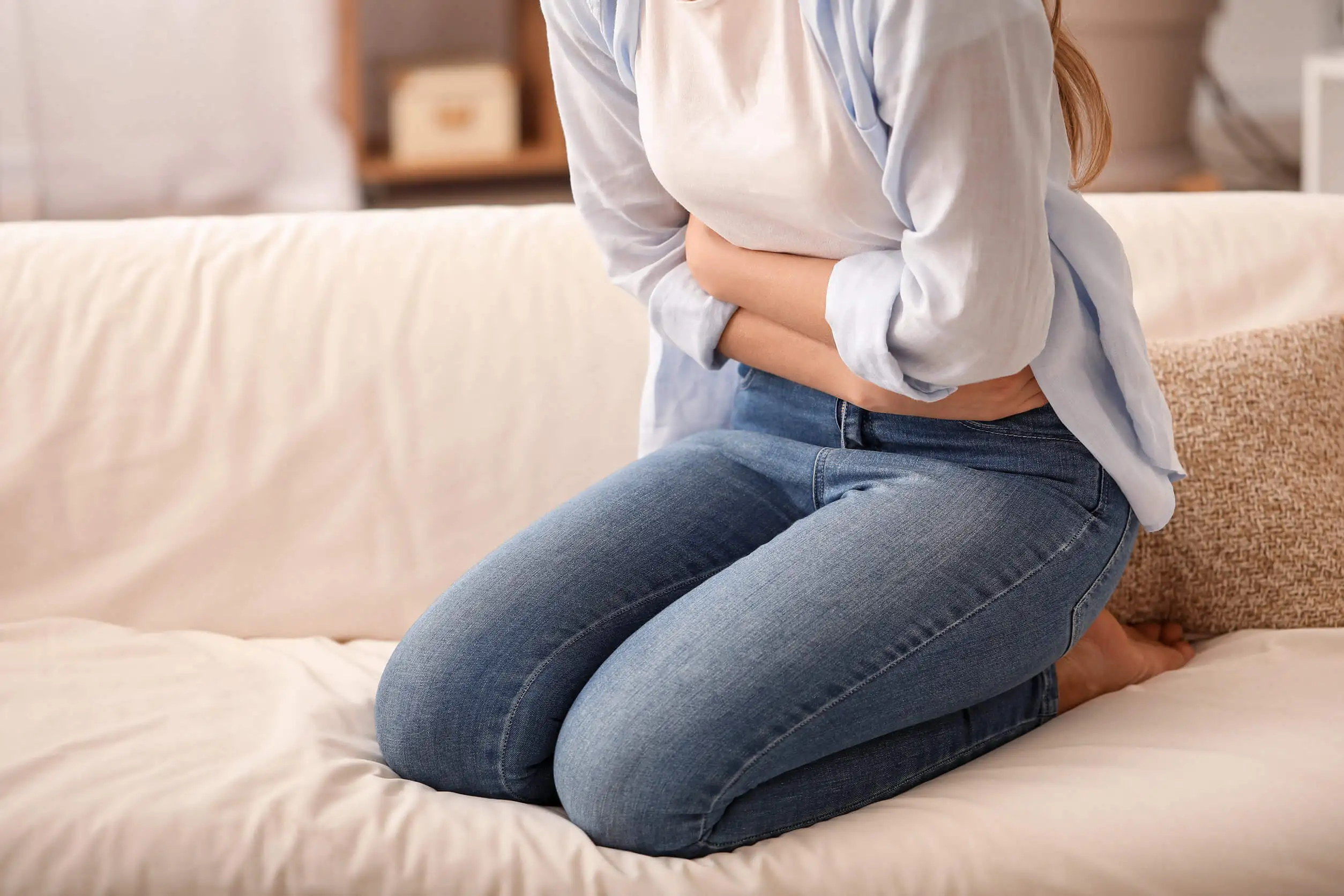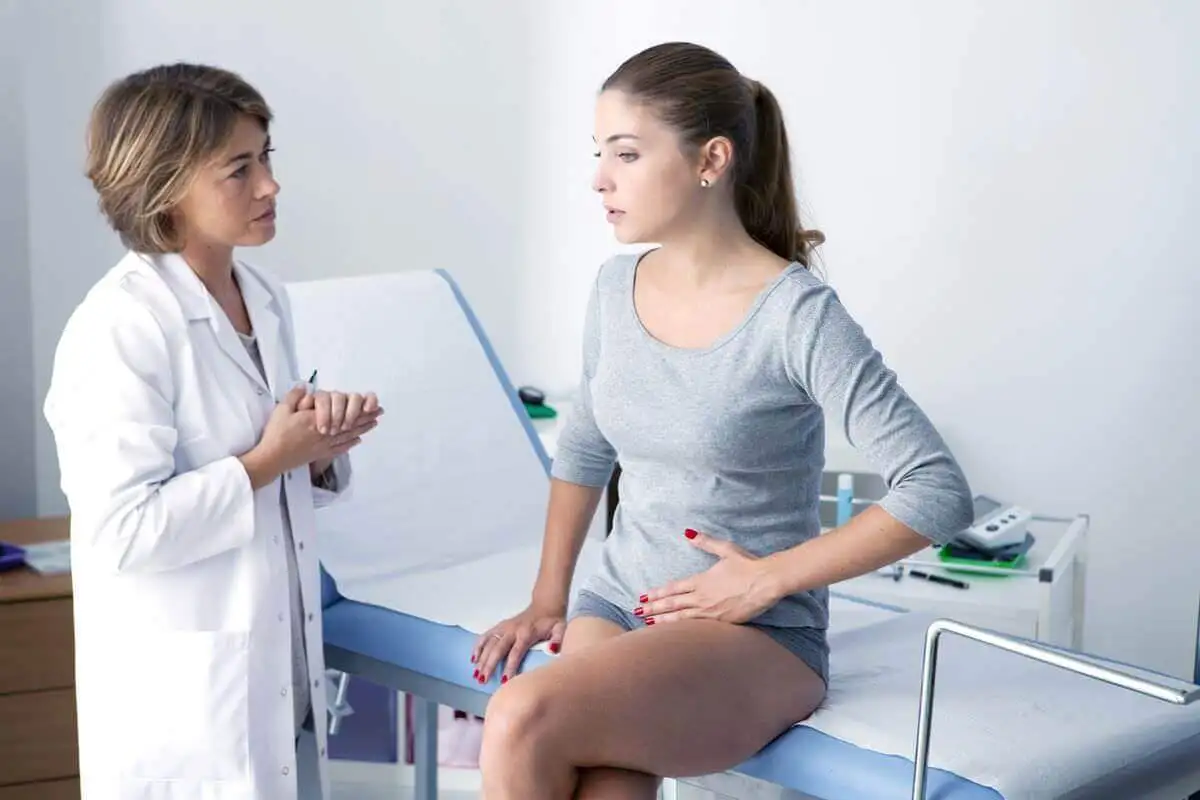8 Causes of Bladder Pain

Bladder pain is a discomfort that has many different causes. It’s almost always related to a urinary infection, but this isn’t always the case. It can also have its origin in other conditions or anatomical conditions.
Remember that the bladder is a hollow organ used to store urine. It’s part of the urinary system and is located in the pelvis. The pain can often be felt in the upper pubic area and is almost always aggravated when urinating. Why does it occur? When to see a doctor? Let’s see.
8 causes of bladder pain
There are several reasons why bladder pain occurs. All of them are related to conditions that should be evaluated and treated by the doctor.
1. Inflammation
Bladder pain is often caused by inflammation in the bladder. This usually occurs for several reasons, such as the following:
- Endometriosis
- Prolonged use of a bladder catheter
- Autoimmune disease
- Use of some medications
- Bladder cancer
In the case of men, an infection or a prostate tumor causes inflammation in the bladder.

Read more: 6 Tips to Cope with an Over-active Bladder
2. Painful bladder syndrome or interstitial cystitis
Painful bladder syndrome or interstitial cystitis also causes pain in this organ. This is a condition in which irritation of the bladder wall occurs. The causes are unknown. The main symptoms are as follows:
- Bladder pain
- Burning during urination
- Pain during sexual intercourse
- Difficulty urinating
- Desire to urinate frequently, during the day and at night
Such symptoms are unstable. Sometimes they occur more intensely, while at other times they almost disappear. They may be exacerbated when the person consumes substances such as coffee, alcohol, black tea or acidic foods. They may also be exacerbated by smoking or stress.
3. Neurogenic bladder
Neurogenic bladder is a condition characterized by an inability to contract and relax the bladder and urinary tract. This, in turn, causes incontinence, bladder pain and a feeling of incomplete emptying. It’s caused by disease or neurological problems and can be of two types:
- Underactive neurogenic bladder. The bladder fails to contract voluntarily and this leads to urine accumulation.
- Overactive neurogenic bladder. The bladder contracts very easily and causes frequent urination.
4. Urinary tract infection
This is perhaps the most common cause of bladder pain. Urinary tract infection can affect the bladder, the urethra and, if not properly treated, also extends to the kidneys. It’s more common in women and some of its symptoms are as follows:
- Pain in the pelvis when urinating
- Pain in the bladder when urinating
- Urges to urinate, but with very small urinations
- Sensation of urgency to urinate
- Blood in the urine
- Dyspareunia (pain during sexual intercourse)
- Slight fever
5. Urethritis
Urethritis is the inflammation of the urethra, the tube that carries urine from the bladder to the outside of the body. It’s almost always caused by a sexually transmitted disease. It causes bladder pain, pain in the belly area, burning, frequent urination and discharge from the urethra.
6. Urinary tract stones
Urinary tract stones are solid masses that form in the kidney, ureter, or bladder, although they’re generically referred to as kidney stones. If they’re small, they don’t cause symptoms. If they’re located in the bladder area and grow, they cause symptoms such as severe bladder pain and nausea.
7. Tumors or prostate adenoma
Another cause of bladder pain is the presence of a cancerous tumor. The most characteristic symptom is the presence of blood in the urine. It’s more common in the elderly and, in most cases, can be identified in early stages.
On the other hand, prostate adenoma – benign prostatic hypertrophy – is a common cause of bladder pain in men. The main symptoms are acute pain and urinary retention. Despite straining, there’s difficulty in urinating; if urination is achieved, the pain disappears transiently.
8. Other possible causes
This symptom can also be caused by pregnancy, especially during the last trimester of gestation. The enlarged uterus puts pressure on all the pelvic organs, and this may cause such discomfort.
Also, the increased progesterone makes the bladder more relaxed and causes it to store more urine than normal. Other possible causes include the following:
- Pelvic inflammatory disease
- Inflammation of the pelvic muscles
- Intestinal diseases
- Menstrual or pregnancy cramp
Treatment of bladder pain
Treatment of bladder pain will depend on the cause of the pain. Typically, the physician will perform a physical examination and, in addition, a urine and blood test. Once the diagnosis is made, one or more of the following measures may be taken:
- Analgesics and anti-inflammatory drugs
- Antibiotics
- Other drugs, such as tolterodine or oxybutynin
- Bladder catheter
- Physical therapy
- Surgery
In the meantime, it is indicated to maintain good intimate hygiene. It’s also advisable to drink at least two liters of water a day, wear comfortable clothing, and get enough rest.

Final recommendations
Bladder pain is a reason for medical consultation. Whenever it’s experienced, it should always be discussed with a doctor, especially if it’s very recurrent or intense. Early treatment, particularly of infections, is crucial in these cases.
Good intimate hygiene is very important, but it isn’t advisable to overdo it, as the result could be counterproductive. In this, as in other conditions, a healthy lifestyle is the best prevention and the ideal complement to any treatment.
All cited sources were thoroughly reviewed by our team to ensure their quality, reliability, currency, and validity. The bibliography of this article was considered reliable and of academic or scientific accuracy.
- Martín, J. A., Martínez, S. V., Falcón, D. E. G., Belloso, D. A. M., & González, R. S. (2017). Sondaje vesical. FMC-Formación Médica Continuada en Atención Primaria, 24(10), 596-604.
- Paz Rojas, J. F., & García Perdomo, H. A. (2013). Cistitis intersticial/síndrome de vejiga dolorosa: ¿Qué hay de nuevo para su diagnóstico?
-
Li R, Leslie SW. Cystitis. [Updated 2022 Feb 14]. In: StatPearls [Internet]. Treasure Island (FL): StatPearls Publishing; 2022 Jan-. Available from: https://www.ncbi.nlm.nih.gov/books/NBK482435/
- López González, P. A., Tornero Ruiz, J. I., López Cubillana, P., Doñate Iñiguez, G., Ruíz Morcillo, J. C., & Pérez Albacete, M. (2009). Alternativa terapéutica para el dolor pélvico crónico de origen vesical. Actas urológicas españolas, 33(6), 681-685.
This text is provided for informational purposes only and does not replace consultation with a professional. If in doubt, consult your specialist.








